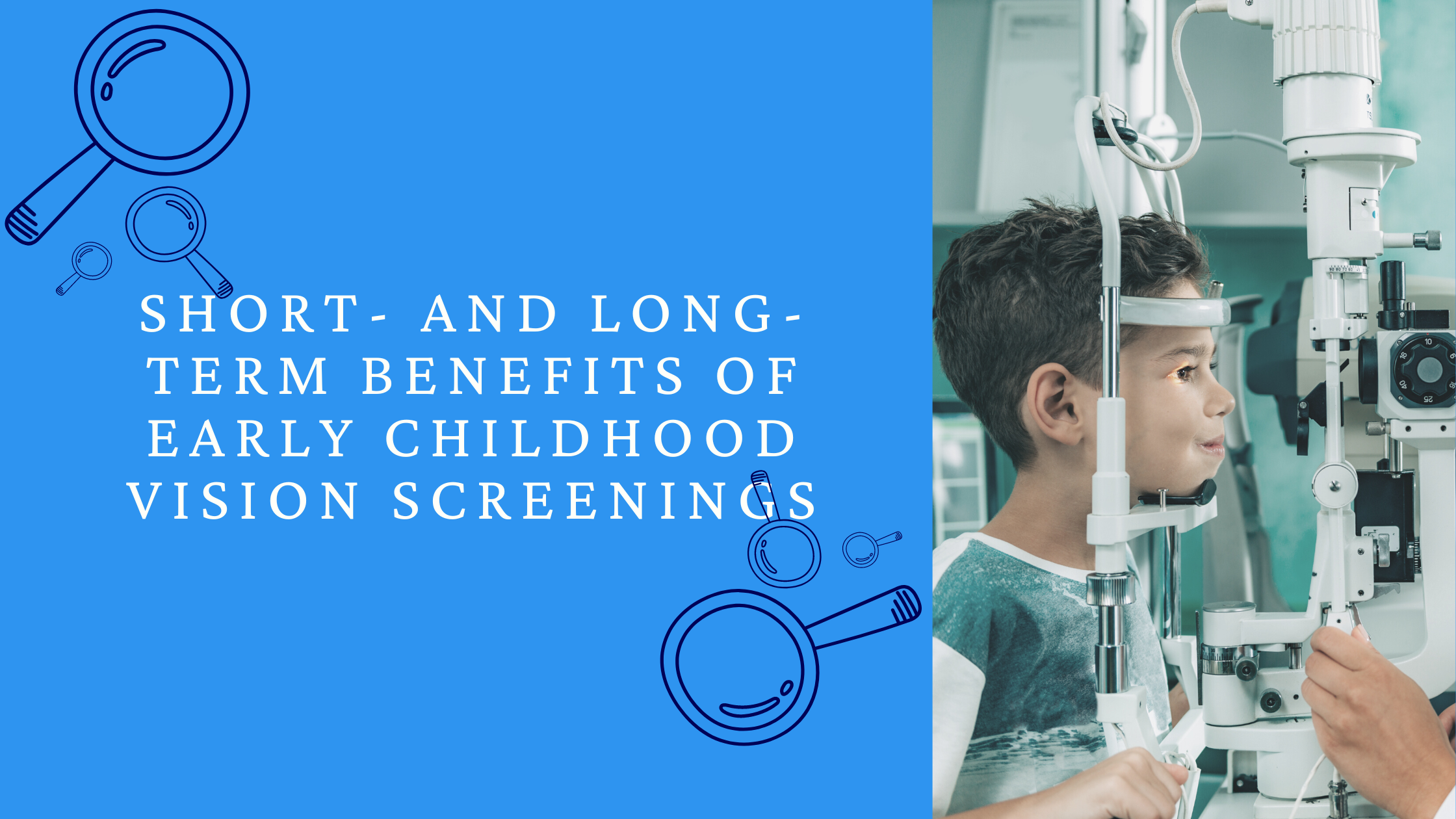 Everyone knows how important it is for to get childhood vision screenings from a pediatrician. Some people even see the importance of dental visits for their young children. However, for some reason, not many are racing to make appointments with a pediatric ophthalmologist for their younger children. And yet studies show how important it is for young ones to be seen early for vision screenings.
Everyone knows how important it is for to get childhood vision screenings from a pediatrician. Some people even see the importance of dental visits for their young children. However, for some reason, not many are racing to make appointments with a pediatric ophthalmologist for their younger children. And yet studies show how important it is for young ones to be seen early for vision screenings.
Are Screenings Recommended for Young Children?
Yes. The U.S. Preventative Services Task Force (USPSTF) recommended in 2017 that all children aged three to five should receive at least one vision screening to specifically detect amblyopia (lazy eye) or any of its risk factors. Amblyopia is a common condition in young children that, if left untreated, can lead to blindness in one eye. It is sometimes a precursor to other ocular diseases that develop as children age. Childhood vision screenings also often look for signs of possible strabismus (cross eyes), myopia (nearsighted), and, although less common, other refractive disorders, such as hyperopia (farsighted) or astigmatism.
What Can a Vision Screening Do for Your Child?
Early childhood vision screenings are a great way to make sure your child doesn’t have a developing vision problem that could otherwise go undetected. Many children will try to make adjustments on their own to help their vision rather than complaining about not being able to see clearly. Trying to squint to see better or move to a better position is natural, but doing this may mask a more serious complication. A vision screening is performed by your child’s pediatrician, a school official, or even a community service. It can help to decide if your child has an issue that should be addressed by an eye health professional.
Should You Still Schedule an Eye Appointment for Your Children if They are Screened Somewhere Else?
In short, yes. A screening is not the same as an exam. If your child gets a screening from school, the pediatrician, or elsewhere, you may receive a recommendation to visit an ophthalmologist for a more comprehensive exam. An eye exam helps diagnose ocular malformation and diseases. According to the American Academy of Ophthalmology, it should be done if a child fails or doesn’t receive their screening or if they have a predisposition to eye disease. Predispositions can include genetic factors and/or medical conditions that lead to eye disease.
Short-Term Benefits of a Vision Screening Before Age Five
A screening that detects a deficiency in a child’s vision and later turns into an appointment for a more comprehensive eye exam and treatment can lead to an improved quality of life in a child’s remaining school days.
- Better Motor Skills
Studies have shown that detection, and thus correction, of visual anomalies has a significant impact on motor skills, language development, and cognitive function. Much of a child’s early cognitive and language learning occurs visually. Children touch what they see and make connections from it. Those visual notes are rooted firmly in their brain. However, if the mental/visual connections made are blurry, they do not take as firm a hold on the child’s memory. Likewise, young children spend much of their learning time developing fine and gross motor skills. Because those skills require connecting what is seen to what is done, they won’t be as strong when visual stimuli are inaccurate. Children who see correctly are more willing to take risks to perfect their learning than those who can’t due to unstable vision. - Better in School
Students who suffer from visual deficiencies struggle with schoolwork. The inability to see the material a child should focus on can lead to frustration and, ultimately, abandonment. Forsaken classwork (when a medical cause is undiagnosed) often contributes to bad grades. In addition, when a child cannot see written material correctly, they may guess what they are reading and achieve poorer scores. Tests taken by children with undiagnosed visual deficiencies are scored lower than those without the same impairments. Therefore, the earlier in a child’s school career (ideally, before they even begin school) that s/he is visually screened, the better chance they have of getting a diagnosis and treatment that can prevent problems in school. - Better Self-esteem
Children who perform poorly in school frequently consider themselves “dumb.” Unfortunately, when the underlying cause of such poor performance is undiagnosed, many around these children may harbor those beliefs. And though these misconceptions are unfounded, affected children still hold this status as a reason to hold themselves in contempt.
Long-Term Benefits of a Vision Screening Before Age Five
Even beyond school-age years, childhood vision screenings that lead to a visual impairment diagnosis can continue to benefit a person.
- Deteriorating Vision
Vision anomalies that are not detected and treated often progress into worse conditions. Something as simple as amblyopia can eventually become blindness if left untreated. Many eye conditions are evolutionary and change as a child grows. Going without treatment can lead to frustration and worsening conditions. - Quality of Life
Life as a blind person comes with many restrictions. While accommodations are certainly better than they were years ago, it is a rare person who has lost their vision and does not wish they still had it. Additionally, children who have grown with their visual impairments treated can achieve higher grades and thus feel better about themselves. Better grades can lead to more vocational options in the future, thereby increasing the chance of a happier life.
No matter what age you are, your eyes need attention. Be sure to schedule childhood vision screenings, no matter how young, to be sure to catch any anomalies before they grow into something more devastating.
